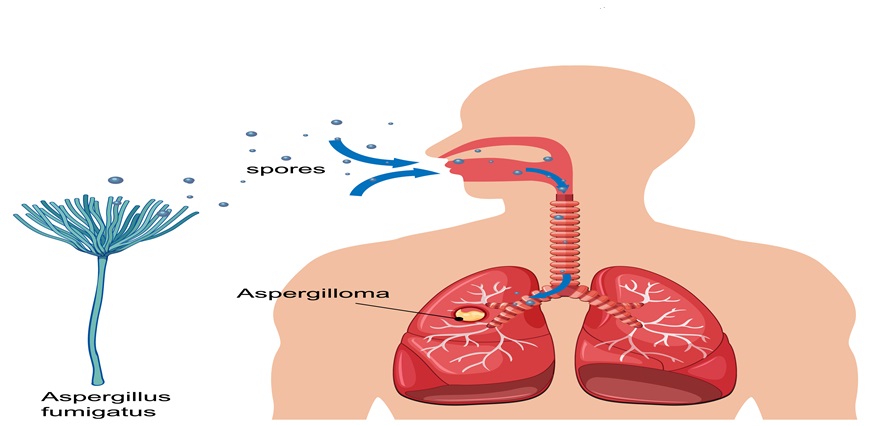

Max Lab > Lab Test in Patiala > Lab Test in Khanpur > Apolipoprotein A1 and B Test
₹ 840
10% OFF for Senior Citizens | USE CODE SS10 *
|
|
Apolipoprotein A1 and B Test |
|
|
Blood |
|
|
12 Hours fasting Required
|
|
|
|
|
₹ 840 |
@3x.png) Description
Description
Apolipoproteins A1 and B are proteins that form a major part of high-density and low-density lipoproteins, respectively. The Apo A1 and B test in Khanpur, Patiala measure the amount of the A1 and B apolipoproteins in the blood, to help get an overview of the ratio of good and bad cholesterol in the blood.
Apolipoprotein A1 and B are proteins that form components of lipoproteins. Apo A1 is associated with HDL, while Apo B is a part of LDL. The Apolipoprotein A1 and B test in Khanpur, Patiala is generally not a part of basic screening panels and is mostly prescribed for definitive studies of an individual’s cardiac risk factors when they have significant histories of CAD, heart attacks, strokes, etc. in their family. The Apo A1 and B blood test in Khanpur, Patiala may also be performed as a follow-up in cases where an individual has received lipid profile results that are inconsistent with their health profile or are abnormal, as Apo A1 and B are known to be more closely associated with cardiovascular conditions.
The Apo A1 protein plays a significant role in the reverse transportation of cholesterol. High Apo A1 levels are inversely related to a person’s risk for developing heart conditions. On the other hand, Apo B levels have a direct association with cardiovascular risks. While the amount of cholesterol in LDL particles may vary, every LDL contains exactly one Apo B protein, which makes the Apo B test in Khanpur, Patiala a more reliable marker for LDL levels.
The Apo A1 and B test in Khanpur, Patiala is prescribed for people with a family history of cardiac issues or who have high-risk factors for developing heart conditions. The Apo blood test in Khanpur, Patiala can prove to be more effective when it comes to studying one’s risk profile for heart diseases. In cases where a person’s lipid profile seems to be inconsistent with their risk factors, an Apo A1 and B test in Khanpur, Patiala can help assess the atherogenic potential of lipid disorders. Other symptoms/conditions that may lead to a Apo A1 and B test in Khanpur, Patiala being prescribed include:
The Lab test in Khanpur, Patiala can help monitor the efficacy of cholesterol treatment, and check the effects of hormonal therapies, and it can be used to detect improvements in renal function. In a few cases, the Apo A1 and Apo B test in Khanpur, Patiala can also help in the diagnosis of genetic issues, like hypobetalipoproteinaemia, that lead to the under- or over-production of apo B or to diagnose conditions, like tangier or fish-eye disease, that cause Apo A1 deficiencies.
At Max Lab, all details, including the cost, of the Apolipoprotein A1 and B test in Khanpur, Patiala can be checked online before booking an appointment for the same. Max Lab also offers an at-home sample collection facility for a seamless experience. The test in Khanpur, Patiala report for the Apo A1 and Apo B blood test in Khanpur, Patiala is generated within 24 hours of sample collection and can be downloaded from our website as well. As the normal range for this test in Khanpur, Patiala may vary from lab to lab and as there are several factors that can affect the Apo A1 and B levels in a person’s body, it is always recommended that one visits their doctor with their test in Khanpur, Patiala results, so a proper diagnosis can be performed.
....Read More@3x.png) Description
Description
Apolipoproteins A1 and B are proteins that form a major part of high-density and low-density lipoproteins, respectively. The Apo A1 and B test in Khanpur, Patiala measure the amount of the A1 and B apolipoproteins in the blood, to help get an overview of the ratio of good and bad cholesterol in the blood.
Apolipoprotein A1 and B are proteins that form components of lipoproteins. Apo A1 is associated with HDL, while Apo B is a part of LDL. The Apolipoprotein A1 and B test in Khanpur, Patiala is generally not a part of basic screening panels and is mostly prescribed for definitive studies of an individual’s cardiac risk factors when they have significant histories of CAD, heart attacks, strokes, etc. in their family. The Apo A1 and B blood test in Khanpur, Patiala may also be performed as a follow-up in cases where an individual has received lipid profile results that are inconsistent with their health profile or are abnormal, as Apo A1 and B are known to be more closely associated with cardiovascular conditions.
The Apo A1 protein plays a significant role in the reverse transportation of cholesterol. High Apo A1 levels are inversely related to a person’s risk for developing heart conditions. On the other hand, Apo B levels have a direct association with cardiovascular risks. While the amount of cholesterol in LDL particles may vary, every LDL contains exactly one Apo B protein, which makes the Apo B test in Khanpur, Patiala a more reliable marker for LDL levels.
The Apo A1 and B test in Khanpur, Patiala is prescribed for people with a family history of cardiac issues or who have high-risk factors for developing heart conditions. The Apo blood test in Khanpur, Patiala can prove to be more effective when it comes to studying one’s risk profile for heart diseases. In cases where a person’s lipid profile seems to be inconsistent with their risk factors, an Apo A1 and B test in Khanpur, Patiala can help assess the atherogenic potential of lipid disorders. Other symptoms/conditions that may lead to a Apo A1 and B test in Khanpur, Patiala being prescribed include:
The Lab test in Khanpur, Patiala can help monitor the efficacy of cholesterol treatment, and check the effects of hormonal therapies, and it can be used to detect improvements in renal function. In a few cases, the Apo A1 and Apo B test in Khanpur, Patiala can also help in the diagnosis of genetic issues, like hypobetalipoproteinaemia, that lead to the under- or over-production of apo B or to diagnose conditions, like tangier or fish-eye disease, that cause Apo A1 deficiencies.
At Max Lab, all details, including the cost, of the Apolipoprotein A1 and B test in Khanpur, Patiala can be checked online before booking an appointment for the same. Max Lab also offers an at-home sample collection facility for a seamless experience. The test in Khanpur, Patiala report for the Apo A1 and Apo B blood test in Khanpur, Patiala is generated within 24 hours of sample collection and can be downloaded from our website as well. As the normal range for this test in Khanpur, Patiala may vary from lab to lab and as there are several factors that can affect the Apo A1 and B levels in a person’s body, it is always recommended that one visits their doctor with their test in Khanpur, Patiala results, so a proper diagnosis can be performed.
....Read More
The digestive canal of an individual is susceptible to various kinds of infec...Read More

Urinary tract infections (UTIs) are infections of the urinary system that are...Read More

Chickenpox is a highly contagious virus that usually infects children under t...Read More

Eczema (or dermatitis) is a general term for inflammation of the skin. Dermat...Read More

Sexually transmitted diseases (STDs) are a serious concern in today's wor...Read More

Are you concerned about the H1N1 influenza virus and its potential impact on ...Read More

Are you experiencing itchy, red, or scaly skin? It might be more than just a ...Read More

Welcome to our blog post on lower respiratory infections - a topic that affec...Read More

When it comes to our health, knowledge truly is power. And when faced with sy...Read More

Air pollution poses major health risks and can exacerbate respiratory disease...Read More

For those dealing with mysterious, persistent allergies, an Immunoglobulin E ...Read More

Purpura refers to discoloured patches on the skin or mucous ...Read More

Hepatitis is a medical condition that is commonly caused by ...Read More

Meningitis is an infection and inflammation of the fluids and membranes surro...Read More

Chagas disease, also known as American trypanosomiasis, is a...Read More

The Nipah Virus, or NIV, is a zoonotic disease that primarily spreads from fr...Read More

Hyperpigmentation is a common skin condition where patches o...Read More

Rocky Mountain spotted fever (RMSF) is a bacterial illness caused by Ricketts...Read More

Aspergillosis is a fungal infection caused by Aspergillus, a...Read More

For many people, a mosquito bite is nothing more than just a nuisance. It gen...Read More

Getting bitten by a mosquito is quite common, however, a mosquito bite can tu...Read More

Understanding the Cryptococcus Fungus Cryptococc...Read More

Strongyloidiasis is an infection caused by the parasitic worm Strongyloides. ...Read More

Also referred to as snail fever, schistosomiasis is a disease caused by paras...Read More

The Human body is one of the most complicated machines and to ensure that it ...Read More

Bacterial infections are more common than you might think, lurking behind eve...Read More

Rat Bite Fever might sound like a scenario from a horror movie, but it's ...Read More

As the leaves begin to change and a crispness fills the air, many of us start...Read More

As the seasons change, many of us look forward to blooming flowers and warmer...Read More

Have you ever experienced an itchy, uncomfortable sensation in your ear that ...Read More

The world is constantly keeping an eye on emerging viruses, and the latest on...Read More

Diphtheria may not be a term you hear every day, but understanding this infec...Read More